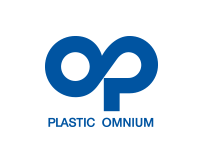We had the pleasure to meet with Nicolas Couet, Purchasing Director at Plastic Omnium Automotive, to have some answers.
M. Couet brought us some first inputs on how this technology is seen in the purchasing community especially from the perspective of a global purchasing organization.
What Procurement tasks do you see soon become automated?
In general, I believe that most repetitive tasks will be automated, allowing buyers to focus more on strategic tasks and therefore spend time to build a better relationship with suppliers. From a more operational point of view, I think "spend analysis" and "supplier data management" will also be impacted. AI will enable us to speed up “first analysis” while maintaining accurate and updated datasets. AI may also provide buyers with trends and predictive analysis.
The search of new suppliers according to relevant criteria will also be facilitated. At least the first steps of the sourcing process will go faster and buyers will focus on the final stages, where a relationship is required.
Contract Management will also benefit from AI. Drafting of contracts will be handled through AI prior to the intervention of buyers and legal experts, who may focus on most sensible items and detect possible mistakes.
What Procurement tasks could be performed in a much more efficient way thanks to AI and Big Data?
As I mentioned earlier, all those things related to sourcing. Typically, an AI could help us by highlighting only the most relevant suppliers according to the company’s expectations and criteria, defined commodity by commodity... This would help us to save a lot of time and directly start working with those that might be a fit for us.
Another great element would be the comparison (at the first level) of offers compared to our cost structure. The AI could then highlight places in the cost breakdown where there is a gap versus our standard and prepare a communication to suppliers that they can review their offers. This would help negotiation in order to converge quickly towards the final offer.
Have you identified first applications related to AI/Big Data within your organization?
Not yet, in my opinion, the technology is not mature enough and can hardly be applied to Procurement. It seems great for a lot of industries and business functions but I have not seen, as of today, concrete and mature applications in the Procurement world with the exception of chatbots.
I was introduced to some very smart chatbots designed for buyers and the potential was obvious. I am certain many startups or Procurement related software companies are actively working to bring us some AI-based chatbot very soon. I still expect to see a solution with a proven ROI that can deliver a real added-value to a Procurement organization. I also want to see real AI in motion and not just an advanced bot using the term AI for Marketing purposes.
What limits or risks have you identified?
Whenever people mention AI, they focus on the technological aspect of it but very rarely on human issues. Buyers will have to adapt to this new technology. I expect a lot of training to teach buyers how to work alongside AI. The fear of being replaced is real and can’t be underestimated while implementing AI-powered solutions. It would be a lie to say that future Procurement organizations will require as many people as today. The buyer of tomorrow will have to understand the basics of AI and also become an expert on everything that is not a repetitive task. Perhaps new roles within the Procurement organization will appear and others disappear as it is the case every time a new technology is introduced. Buyers will also have to learn new things to stay updated.
The other huge risk that I see is the loss of human relationships with suppliers. AI will give us access to new information based on data, which is great. However, not everything is based on figures. What about the human aspect? How do you translate it in numbers? I believe that you can’t do that easily. We have to come up with some training to teach future buyers who are born and raised with digital tools to not base their decisions entirely on AI. I believe the real deal is about finding a real balance between computer-assisted decisions and human nature based on relationships.
What are the two most important challenges related to the transformation of all Procurement organizations for the next five years?
Actually, there are many things to talk about. I want to start with the CSR policy. It will play a bigger role in the years to come and we will have to adapt to it, it is already under deployment almost everywhere but we still have a long way to go.
I also expect to see the Procurement function become more business-oriented and customer-oriented in order to contribute more to the overall company’s success. It can’t any longer be a function just dedicated to cost reduction.
Furthermore, it is safe to assume that the on-going digitalization of the Procurement function will accelerate or perhaps just begin for some not mature organizations. It will become a real weakness to not have a digitalized Procurement organization in the years to come. Finally, the rise of comprehensive information systems that cover most of the Procurement tasks while tackling existing and new procurement challenges will not surprise me. I believe that any tool that can deliver business insight and automate a Procurement task will be a success.





